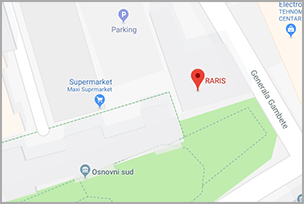Danube Region is affected by natural disasters resulting from climate change, increasing the intensity and frequency of heat waves, droughts, fire incidents, and heavy rainfalls with flash floods on local level. Since 75% of the region’s population lives in cities, these anomalies put the citizens at particular risk. Local community leaders must be prepared for these weather anomalies.
Urban water management have so far mainly followed traditional approaches, including large-scale gray infrastructure investments, lacking innovation and the exploitation of ecosystem services. Their social acceptance is usually hindered as citizens are not involved in design and testing. Settlements have different micro-climatic, infrastructural, financial, legal and social backgrounds in the Danube Region, but they all need support in forecasting local climate risks and identifying effective interventions.
Transnational cooperation is needed for this knowledge exchange and for mainstreaming the conclusions to macroregional level. The cross-sectoral partnership aims to spread the Sponge City concept in the Danube Region to answer these challenges.
A sponge city is an urban area which has been designed to cope with excess rainfall using a variety of techniques. A Sponge City mitigates/prevents urban floods by providing the area with the ability to naturally absorb the water. This concept reduces the extent of impermeable surfaces and increases the amount of absorbent land: green surfaces, green walls, bioswales, inner-city lakes, rain gardens, permeable pavements. Supplementing this approach with channeling and storage systems also helps to counter water shortages.
The Sponge City project analyses the hydroclimatic characteristics and water management practices of 12 pilot settlements, designs and sets up a toolbox to support the planning of sponge city measures, tests and promotes the tools by participative elaboration of local action plans, feasibility studies and demonstration investments. The project partners mainstream the results to national and EU level.
For more information please follow the official project website at: https://interreg-danube.eu/projects/spongecity
|
Project Partners (13):
|

This project is supported by the INTERREG Danube Region programme with co-financing from the European Regional Development Fund






